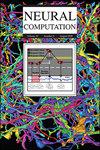Learning in Wilson-Cowan Model for Metapopulation
IF 2.1
4区 计算机科学
Q3 COMPUTER SCIENCE, ARTIFICIAL INTELLIGENCE
引用次数: 0
Abstract
The Wilson-Cowan model for metapopulation, a neural mass network model, treats different subcortical regions of the brain as connected nodes, with connections representing various types of structural, functional, or effective neuronal connectivity between these regions. Each region comprises interacting populations of excitatory and inhibitory cells, consistent with the standard Wilson-Cowan model. In this article, we show how to incorporate stable attractors into such a metapopulation model’s dynamics. By doing so, we transform the neural mass network model into a biologically inspired learning algorithm capable of solving different classification tasks. We test it on MNIST and Fashion MNIST in combination with convolutional neural networks, as well as on CIFAR-10 and TF-FLOWERS, and in combination with a transformer architecture (BERT) on IMDB, consistently achieving high classification accuracy.基于Wilson-Cowan模型的元人口学习。
Wilson-Cowan模型是一种神经质量网络模型,它将大脑皮层下的不同区域视为连接的节点,这些连接代表了这些区域之间不同类型的结构、功能或有效的神经元连接。每个区域包括相互作用的兴奋性和抑制性细胞群,与标准的威尔逊-考恩模型一致。在本文中,我们将展示如何将稳定吸引子纳入这种元种群模型的动力学中。通过这样做,我们将神经质量网络模型转换为能够解决不同分类任务的生物学启发学习算法。我们将其与卷积神经网络、CIFAR-10和TF-FLOWERS以及IMDB上的变压器架构(BERT)结合在一起,在MNIST和Fashion MNIST上进行了测试,始终如一地实现了较高的分类精度。
本文章由计算机程序翻译,如有差异,请以英文原文为准。
求助全文
约1分钟内获得全文
求助全文
来源期刊

Neural Computation
工程技术-计算机:人工智能
CiteScore
6.30
自引率
3.40%
发文量
83
审稿时长
3.0 months
期刊介绍:
Neural Computation is uniquely positioned at the crossroads between neuroscience and TMCS and welcomes the submission of original papers from all areas of TMCS, including: Advanced experimental design; Analysis of chemical sensor data; Connectomic reconstructions; Analysis of multielectrode and optical recordings; Genetic data for cell identity; Analysis of behavioral data; Multiscale models; Analysis of molecular mechanisms; Neuroinformatics; Analysis of brain imaging data; Neuromorphic engineering; Principles of neural coding, computation, circuit dynamics, and plasticity; Theories of brain function.
 求助内容:
求助内容: 应助结果提醒方式:
应助结果提醒方式:


